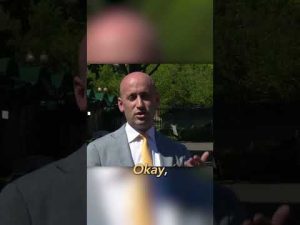In Springfield, Ohio, a lively conversation is brewing around immigration, particularly concerning the Haitian community that has made the city their home. Many Springfield residents believe that the presence of Haitians, who are often here under Temporary Protected Status (TPS), has significantly bolstered the local economy. However, recent policy shifts from the Trump administration have cast a cloud of uncertainty over their future, making it a hot topic for local discussions. The concern is palpable: what happens if these hardworking individuals, deemed legally present, face deportation?
With President Trump tightening the reins on immigration, the fear of deportation looms over those who have fled dangerous conditions in Haiti. Many have come to Springfield seeking not just safety, but a chance to thrive, establishing businesses and contributing positively to the community. Residents have observed a remarkable 25% increase in the city’s population since 2020, thanks in large part to these immigrants. Yet, some locals feel the pressure, reporting strains on education and healthcare resources, while others resist what they see as mischaracterization of the situation.
Local business owners have voiced concerns over potential deportations. One business owner expressed that the loss of employees working under TPS could greatly impact the local economy. They highlighted that these individuals are not just any workers; they are skilled professionals who enhance the community, from doctors to educators. In fact, many locals argue that the Haitian community’s contributions far outweigh the challenges that come with rapid demographic changes.
Despite the improvements immigration brought, officials acknowledge that the sudden influx has also led to tangible growing pains. Language barriers and the need for additional services have tested Springfield’s adaptability. Still, the economic boost from these resilient immigrants is evident. If deportation measures proceed, they could lead to a significant economic downturn, potentially jeopardizing the city’s gains in employment and sales tax revenue. Some residents discussed innovative solutions like lower sales taxes to encourage spending, showcasing the pragmatic spirit of Springfield.
The harsh realities of TPS complicate the discourse. Many TPS holders in Springfield are aware that the status that protects them from deportation is precarious. The risks they face, if forced to return to Haiti, are severe, as many have fled violence and instability. Conversations in the community have shifted from just survival to the fear of what their future holds. While some argue the need for law and order through deportation, others remind the community of the human element at stake. Navigating these complex waters requires not just understanding the laws, but also recognizing the humanity of those affected.
As Springfield navigates this immigration conundrum, residents face a critical juncture where economics, legality, and ethics intertwine. The community remains cautiously optimistic, hoping that further dialogue can pave the way for solutions that benefit everyone. With a diverse mix of opinions on immigration, Springfield embodies a microcosm of the larger national debate—a place where passion and pragmatism collide, and where the future of its Haitian community is worrying yet filled with hope.







